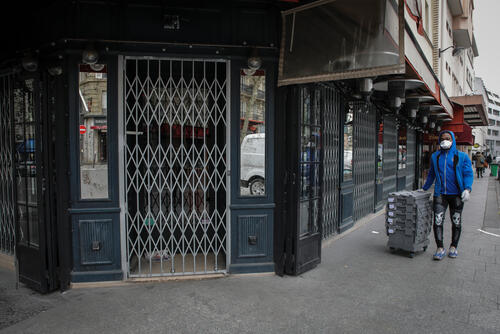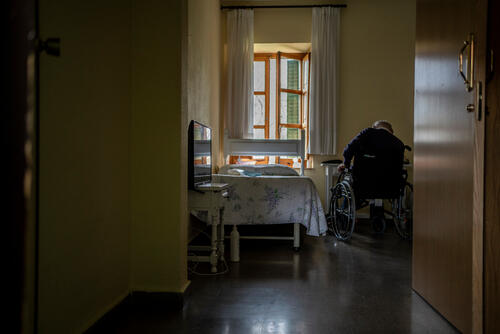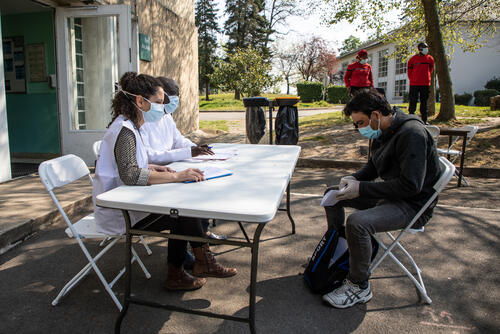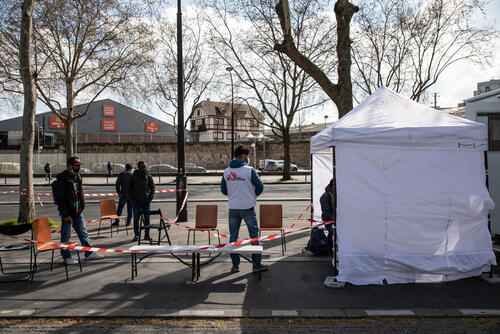- As coronavirus disease COVID-19 continues to spread, MSF teams will now respond in France.
- MSF teams will support the French health authorities, and will focus on detecting and managing cases of coronavirus disease among vulnerable people.
- People including migrants and the homeless are at particular risk, and our teams will work to ensure people will have access to diagnosis and care.
Paris – Faced with the spread of the COVID-19 pandemic, the French health system is strengthening its capacity to prevent and treat cases. This week, in consultation with France’s health authorities, Médecins Sans Frontières (MSF) is setting up activities to help detect and manage COVID-19 cases among the most vulnerable populations in Paris and the surrounding region.
People in precarious situations, such as migrants, the homeless and unaccompanied minors, are particularly vulnerable to the pandemic. Whether they live in substandard housing or in overcrowded, makeshift encampments, unsanitary environments like these foster the spread of the virus among people often already in poor health brought on by their living conditions, and excluded from healthcare systems.
In the context of the coronavirus pandemic, we are particularly concerned about the fate of people in precarious situations.Pierre Mendiharat, MSF deputy operations director
“In the context of the coronavirus pandemic, we are particularly concerned about the fate of people in precarious situations,” explains Pierre Mendiharat, MSF’s deputy operations director. “If nothing is done to detect and isolate cases, the disease risks spreading among them rather quickly. And even more so, as these people who live on the margins of services available to the general population can be difficult to reach.”
MSF teams are currently working out the details of our activities with partner medical-social associations and the Île-de-France Regional Health Agency. They will include mobile consultations and screening to be able to reach the most vulnerable, and support with diagnosis, isolation and case management in both existing and prospective shelters.
“Our contribution in France is part of initiatives MSF has already launched in other countries, in Italy, for example, and those our teams may develop in the weeks to come in countries where we already had projects before COVID-19 broke out,” says Mendiharat.
Our teams are also continuing to deliver medical care around the world, although this assistance is under threat in many places due to travel restrictions and constraints on the movement of people and goods.
MSF provides assistance in 70 countries across the world. In France, MSF organises initiatives to help provide support and shelter to unaccompanied minors in Paris and the surrounding area, Marseille and other regions of France.






